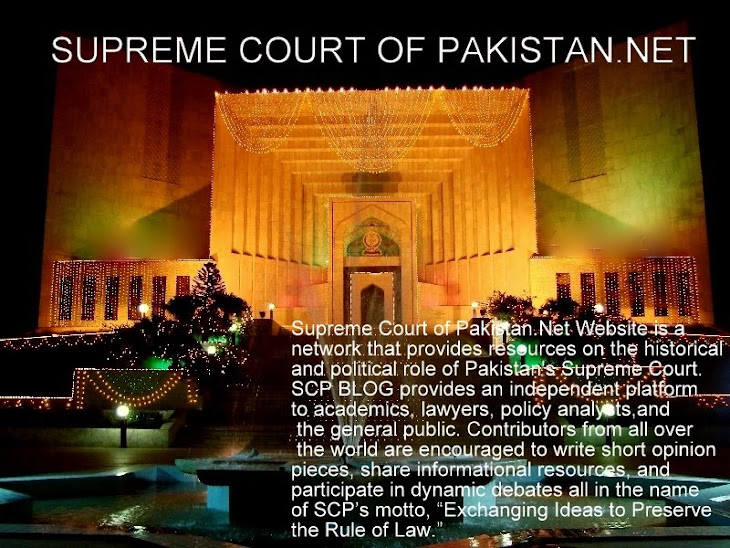IT is a common feature of all Pakistani regimes — past and present, civil or military — that when institutions are weakened by legislative acts or executive orders they hesitate to exercise whatever little authority that remains. And when empowered by law or circumstances, they tend to exceed, even abuse, their power. The president and the prime minister, cabinet and parliament, civil services and the armed forces, even businesses, behave in this manner. In the current situation, however, this argument is more applicable to the judiciary and the district governments. Foremost is the example of the Supreme Court. At one time it authorised a coup-making general to amend the constitution ‘for the attainment of the declared objectives.’ Now the court has taken upon itself to administer the retail price of sugar... Read More
Monday, October 26, 2009
The Controversial Role of the SC: Editor's Pick
"The Supreme Court is a prime example of an institution torn by periods of too much and too little power." I couldn't have put it better. Read excerpt below:
IT is a common feature of all Pakistani regimes — past and present, civil or military — that when institutions are weakened by legislative acts or executive orders they hesitate to exercise whatever little authority that remains. And when empowered by law or circumstances, they tend to exceed, even abuse, their power. The president and the prime minister, cabinet and parliament, civil services and the armed forces, even businesses, behave in this manner. In the current situation, however, this argument is more applicable to the judiciary and the district governments. Foremost is the example of the Supreme Court. At one time it authorised a coup-making general to amend the constitution ‘for the attainment of the declared objectives.’ Now the court has taken upon itself to administer the retail price of sugar... Read More
IT is a common feature of all Pakistani regimes — past and present, civil or military — that when institutions are weakened by legislative acts or executive orders they hesitate to exercise whatever little authority that remains. And when empowered by law or circumstances, they tend to exceed, even abuse, their power. The president and the prime minister, cabinet and parliament, civil services and the armed forces, even businesses, behave in this manner. In the current situation, however, this argument is more applicable to the judiciary and the district governments. Foremost is the example of the Supreme Court. At one time it authorised a coup-making general to amend the constitution ‘for the attainment of the declared objectives.’ Now the court has taken upon itself to administer the retail price of sugar... Read More
Subscribe to:
Comments (Atom)

